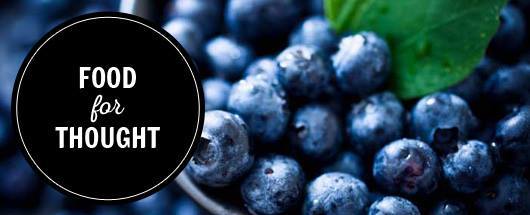The right foods can boost brain power and stave off Alzheimer’s and other forms of dementia, research shows. Key nutrients, along with exercise and adequate Vitamin D, keep brain cells healthy and assist with memory, concentration, and your ability to learn.
Here is your guide to eating right for a healthy brain:
FATTY FISH
Seafood like salmon, albacore tuna, mackerel, and sardines are packed with omega-3 fatty acids, powerful and versatile nutrients that are essential for a healthy mind. About 40% of the fatty acids in brain cell membranes are DHA, one of the main omega-3 fatty acids in fish oil. Researchers found that people who ate fish 3 times a week and had the highest levels of DHA in their blood slashed their risk of Alzheimer’s disease by 39%.
LEAFY GREEN AND CRUCIFEROUS VEGETABLES
Pile salads, stir-fries, and side dishes with broccoli, cauliflower, cabbage, kale, bok choy, and brussel sprouts. They’re filled with antioxidants like vitamin C and plant compounds called carotenoids, which are particularly powerful brain protectors.
Antioxidants prevent damage from free radicals, which are waste products your body makes when cells use fuel to create energy.
While all antioxidants (from a variety of plants) are good for your brain, these cruciferous veggies are especially effective.
Spinach: A handful of spinach can do wonders for your brain. Spinach is a great source of folate, a B-vitamin that helps maintain healthy brain circulation by preventing the buildup of plaque. It also helps to form neurotransmitters needed for all thinking and learning, and helps protect DNA in neurons from damage. Lastly, folate helps the liver to detoxify substances in the body to keep the brain healthy.
SWEET POTATO
Sweet potatoes are loaded with carotenoids, giving them a rich orange colour. Carotenoids are important for the brain because they act as antioxidants, protecting cells from damage. Carotenoids also help form vitamin A, which is important in helping to sprout new neurons and to help neurons find each other to form new connections.
Despite their sweet taste, sweet potatoes are less sugary than white potatoes. The rate at which a food is converted to sugar is called the glycemic index. For optimal brain and body health, eat more foods with a lower glycemic index, like sweet potatoes.
AVOCADO, OILS, NUTS AND SEEDS
They all contain another important antioxidant: vitamin E. In one study, researchers found that people who consumed moderate amounts of vitamin E — from food, not supplements —lowered their risk of Alzheimer’s Disease by 67%.
Avocado: Avocados are rich in a fatty acid called oleic acid, which helps to build the coating of insulation, known as myelin (found in white matter of the brain.) Myelin helps information travel at fast speeds in the brain. Other sources of oleic acid include olives, almonds and pecans.
Nuts and Seeds: Nuts and seeds are good sources of vitamin E, and higher levels of vitamin E correspond with less cognitive decline as you get older. Add 30grams a day of walnuts, hazelnuts, Brazil nuts, filberts, almonds, cashews, peanuts, sunflower seeds, sesame seeds, flax seed, and unhydrogenated nut butters such as peanut butter, almond butter, and tahini. Raw or roasted doesn’t matter, although if you’re on a sodium-restricted diet, buy unsalted nuts.
DARK CHOCOLATE
Sweeten your brain-boosting diet with the dark kind (at least 70% cocoa); it contains flavonoids, another class of antioxidants that some research links to brain health. Other flavonoid-rich foods include apples, red and purple grapes, red wine, onions and tea.
CURCUMIN
Studies have shown that curry’s active ingredient, curcumin, actually clears away Alzheimer’s-causing proteins in the brain called amyloid-beta plaques. Curcumin, from the root of the turmeric plant, gives curry its yellow colour.
BERRIES
Research indicates these antioxidant powerhouses may protect your brain. Some scientists think they help to build healthy connections between brain cells.
Blueberries: “Brainberries” is what Steven Pratt, MD, author of Superfoods Rx: Fourteen Foods Proven to Change Your Life, calls these tasty fruits. Pratt says that in animal studies researchers have found that blueberries help protect the brain from oxidative stress and may reduce the effects of age-related conditions such as Alzheimer’s disease or dementia. Studies have also shown that diets rich in blueberries significantly improved both the learning capacity and motor skills of ageing rats, making them mentally equivalent to much younger rats.
WHOLE GRAINS
Fibre-rich oatmeal, oat bran and brown rice help stabilise blood glucose (sugar) levels, compared with refined carbs like white bread and sugary foods. Your body digests these simple sugars quickly, so you have a sudden energy spike, and subsequent plummet. Since glucose is the brain’s main source of fuel, it’s important to keep levels steady; during a crash, you’ll feel tired and irratable and have trouble concentrating.
Fibre-rich whole grains are an integral part of the Mediterranean diet, which is also loaded with fruits, vegetables, nuts and seeds, olive oil, and wine. Research out of Columbia University Medical Center in New York City shows that this diet may be linked to lower risk of the mild cognitive impairment that can progress to Alzheimer’s disease. This type of diet may also reduce inflammation, oxidative stress, and other vascular risk factors such as high blood pressure, all of which may have a role in increasing risk for brain and heart diseases.
Brown Rice: B-vitamins in brown rice such as riboflavin help produce energy for brain cells by revving up mitochondria. Brown rice contains other important B-vitamins too – like niacin, thiamin, and inositol for optimal brain health.
WATER
Every cell in your body needs water to thrive, and your brain cells are no exception; in fact, about three-quarters of your brain is water. A small Ohio University study found that people whose bodies were well hydrated scored significantly better on tests of brainpower, compared with those who weren’t drinking enough.
PURPLE GRAPES
Purple grapes contain the phytonutrient resveratrol, known for its helpful effects on circulation. While resveratrol is concentrated in red wine, you can still get plenty by eating purple grapes. Grapes help prevent circulatory problems that contribute to dementia by decreasing the supply of oxygen and nutrients. The benefits? Grapes help keep blood vessels healthy by preventing blockages.
EGGS
The cholesterol in eggs is good for brain health. Cholesterol supports the membranes of neurons, helping them to keep their shape, and is also a building block for hormones that influence brain function. Eggs also contain DHA, an omega-3 fatty acid that helps to form connections between neurons.
You can also get DHA from dark leafy greens and blue-green algae.



